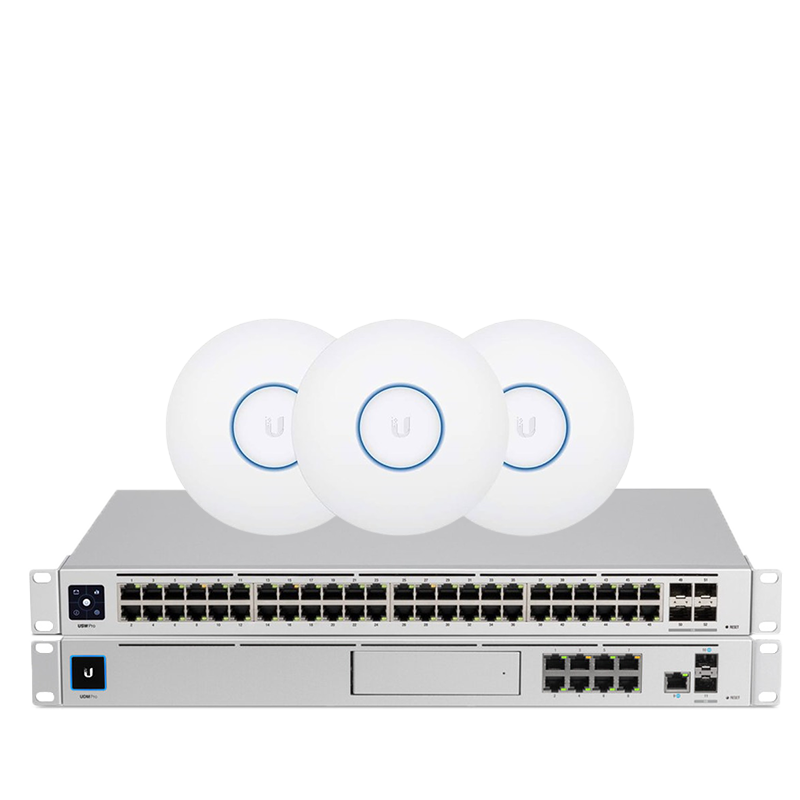Our Phone System Features
Auto Attendant (IVR)
Extensions
Voicemail to Email
Call Recording
Call Management
Advanced Call Routing
CRM Integration
Scalability
Security Features
Unified Communications
Customization
Advanced Reporting

Our System of Choice.
Discover the power and flexibility of FreePBX, our preferred communication system. With its open-source foundation and robust feature set, FreePBX empowers businesses of all sizes to manage their communications efficiently and cost-effectively. From seamless integration with existing infrastructure to customizable extensions and advanced call routing options, FreePBX offers unparalleled versatility. Whether you're a small startup or a large enterprise, harness the potential of FreePBX to streamline your communication workflow and enhance productivity.

Choose the Right Fit for Your Organization.
Navigating phone choices can be overwhelming. Trust in our top brands - Yealink, Sangoma, and Digium.
Discover the perfect communication tool for your organization with our selection of top-quality Yealink, Sangoma, and Digium phones. Each option offers unique features and reliability to meet your specific needs, ensuring seamless connectivity and productivity for your team.
Pick Your Phone System: On-Premises or in the Cloud
On-Premises PBX
Enjoy complete control and privacy with an on-premises PBX. Tailor your system to fit specific needs and ensure data remains within your secure network.
Pros:
- Complete control over hardware and software configuration.
- Data remains within your organization's secure network.
- Potentially lower long-term costs if the system is used for many years.
Cons:
- Higher initial investment in hardware
- Limited scalability, especially for smaller organizations without dedicated IT resources.
- Vulnerable to on-site disasters such as power outages or hardware failures
Cloud-Hosted PBX
Experience unmatched flexibility and scalability with a cloud-hosted PBX. Enjoy cost-effectiveness, easy setup, and seamless scalability without the need for on-site hardware
Pros:
- Lower initial investment, as there is no need to purchase and maintain on-site hardware.
- Easy setup and quick deployment, often with plug-and-play functionality.
- Accessible from anywhere with an internet connection, promoting remote work flexibility.
Cons:
- Dependence on internet connectivity; outages or network issues can disrupt service.
- Ongoing subscription costs may accumulate over time, potentially surpassing the cost of on-premises solutions in the long run
- Data security concerns may arise due to off-site data storage and reliance on third-party providers.
Let Us Host Your Phone System
Discover the unparalleled ease and reliability of hosting your VoIP phone system with us. With our dedicated team of experts managing the virtualized FreePBX platform on Vultr's VPS, you can trust in seamless scalability tailored to your business's growth. Benefit from our 99% uptime guarantee, ensuring uninterrupted communication critical for your operations. With 32 global data center locations and 24/7 server monitoring, experience top-tier hosting that prioritizes performance and connectivity. Focus on propelling your business forward while we handle the hosting intricacies, providing you with peace of mind and a foundation for success.

Why Switch to VoIP?
Make the switch to VoIP and revolutionize your communication experience. Say goodbye to traditional phone lines and hello to cost savings, flexibility, and scalability. VoIP technology offers crystal-clear voice quality, seamless integration with your existing systems, and the freedom to communicate from anywhere with an internet connection. Experience the benefits of advanced features like virtual receptionists, call forwarding, and unified messaging, all while reducing your monthly phone bills. Embrace the future of communication with VoIP and stay ahead in today's fast-paced digital world.
Up to 90% savings
Experience significant operational cost reduction compared to traditional phone services.
2,000,000+ Customers
Join over two million professionals worldwide who trust FreePBX for reliable VoIP phone solutions everyday.
Ready to Get Started? +1 (706) 510-6500







